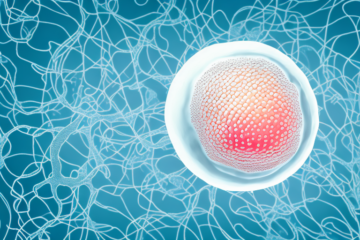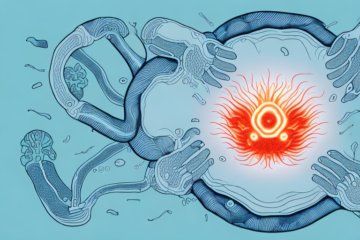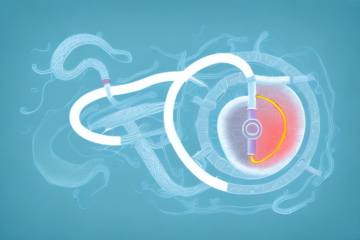In the world of medicine, genetic diseases are a complex and challenging area of study. These types of conditions develop as a result of changes to our genetic makeup, which can involve both inherited genes and spontaneous mutations. Understanding the science behind genetic diseases is essential if we hope to identify the warning signs, prevent their spread, and provide effective treatments for those who are affected. In this article, we will provide an overview of genetic diseases, covering how they develop, their symptoms, and treatment options, as well as emotional and psychological support for those who need it.
Understanding Genetic Diseases: An Overview
A genetic disease is a disorder that is caused by changes to the DNA sequence within our cells. These changes can affect any part of the genome, from individual genes to entire chromosomes. Genetic diseases can be inherited from our parents, or they can arise spontaneously as a result of genetic mutations. Common types of genetic diseases include cystic fibrosis, Huntington’s disease, and sickle cell anemia.
Genetic diseases can have a wide range of symptoms and severity, depending on the specific genetic mutation involved. Some genetic diseases may cause mild symptoms, while others can be life-threatening. In some cases, genetic diseases may not become apparent until later in life, making diagnosis and treatment more challenging.
Advances in genetic testing and gene therapy have provided new opportunities for the diagnosis and treatment of genetic diseases. Genetic testing can help identify individuals who are at risk for developing certain genetic diseases, allowing for early intervention and treatment. Gene therapy, which involves replacing or repairing faulty genes, holds promise for the treatment of genetic diseases that were previously untreatable.
The Science of Genetics: How Genetic Diseases Develop
The study of genetics is essential to understanding how genetic diseases develop. Genes are the basic units of inheritance, and they contain the information that our bodies need to function. Genetic mutations, ranging in severity from minor to life-threatening, can lead to genetic diseases. Mutations can occur naturally, or they can result from exposure to environmental factors like radiation and toxins. Once a mutation occurs, it can be passed down through generations, leading to the development of inherited genetic diseases.
Genetic diseases can manifest in a variety of ways, depending on the specific mutation and the affected individual’s genetic makeup. Some genetic diseases are apparent at birth, while others may not become apparent until later in life. Additionally, some genetic diseases are more common in certain populations, highlighting the importance of understanding genetic diversity and its impact on health.
Advancements in genetic research have led to the development of new treatments and therapies for genetic diseases. Gene therapy, for example, involves replacing or repairing faulty genes to treat or prevent genetic diseases. Additionally, genetic testing can help identify individuals who may be at risk for developing certain genetic diseases, allowing for early intervention and treatment.
Common Types of Genetic Diseases and their Symptoms
There are many different types of genetic diseases, each with their unique symptoms and characteristics. Inherited genetic diseases can affect every part of the body, from the nervous system to the digestive system. Common symptoms of genetic diseases include developmental delays, intellectual disabilities, and physical abnormalities. Individuals with genetic diseases may experience chronic pain, difficulty walking, and a decreased quality of life. It is important to seek medical advice if you or a loved one experience any of these symptoms.
Some examples of common genetic diseases include cystic fibrosis, sickle cell anemia, and Huntington’s disease. Cystic fibrosis is a disease that affects the lungs, pancreas, and other organs, causing difficulty breathing and digestive problems. Sickle cell anemia is a blood disorder that causes red blood cells to become misshapen and break down, leading to anemia and other complications. Huntington’s disease is a neurological disorder that causes progressive degeneration of brain cells, leading to movement, cognitive, and psychiatric symptoms.
Inherited Genetic Diseases: What You Need to Know
Inherited genetic diseases can be passed down through families in several ways. Some diseases require the inheritance of the abnormal gene from both parents, while others can be caused by one parent passing on the mutation. Genetic counseling can help individuals and families understand their risks of inheriting a genetic disease and explore options for family planning.
It is important to note that not all inherited genetic diseases are present at birth. Some diseases may not manifest until later in life, making it difficult to identify carriers of the abnormal gene. Additionally, genetic testing can provide valuable information for individuals and families, but it is important to consider the emotional and psychological impact of the results. Seeking support from healthcare professionals and support groups can help individuals and families navigate the complexities of inherited genetic diseases.
The Role of Genes in the Development of Genetic Disorders
The role of genes in the development of genetic disorders is complex, and scientists are still studying exactly how genetic mutations lead to the development of genetic diseases. However, the more we understand about genes and how they function, the better equipped we will be to identify new treatments and prevent the spread of genetic diseases.
One important factor in the development of genetic disorders is the inheritance pattern of the mutated gene. Some genetic disorders are caused by a single gene mutation that is passed down from one or both parents, while others are caused by a combination of genetic and environmental factors. Understanding the inheritance pattern of a genetic disorder can help doctors and genetic counselors provide more accurate information about the risk of passing the disorder on to future generations.
In addition to understanding the role of genes in the development of genetic disorders, researchers are also exploring new ways to treat and prevent these diseases. One promising area of research is gene therapy, which involves replacing or repairing faulty genes with healthy ones. While gene therapy is still in the early stages of development, it has the potential to revolutionize the treatment of genetic disorders and improve the lives of millions of people around the world.
Genetic Testing: A Tool for Early Detection and Prevention
Genetic testing is a powerful tool for detecting genetic diseases early and preventing their spread. Genetic testing can identify the presence of mutated genes, allowing doctors to diagnose genetic diseases before the onset of symptoms and intervene with treatments. Genetic testing can also help individuals understand their risks of developing a genetic disease, allowing them to take proactive measures like lifestyle changes and increased monitoring.
Furthermore, genetic testing can also provide valuable information for family planning. For example, if a couple is planning to have children and one or both partners carry a gene for a genetic disease, genetic testing can determine the likelihood of their children inheriting the disease. This information can help the couple make informed decisions about their family planning options, such as adoption or using assisted reproductive technologies like in vitro fertilization with pre-implantation genetic diagnosis.
Treatment Options for Genetic Diseases – Medications, Surgery, and Lifestyle Changes
There is no cure for genetic diseases currently, but many treatment options are available to manage symptoms and improve quality of life. These include medications, surgeries, and lifestyle changes like diet and exercise modifications. Genetic disease management is often a long and challenging path, but with the right treatment plan and support, individuals with genetic diseases can improve their overall health and quality of life.
It is important for individuals with genetic diseases to work closely with their healthcare providers to develop a personalized treatment plan. This may involve a combination of different treatment options, depending on the specific disease and its symptoms. In addition, ongoing monitoring and adjustments to the treatment plan may be necessary to ensure the best possible outcomes. It is also important for individuals with genetic diseases to have a strong support system, including family, friends, and healthcare professionals, to help them navigate the challenges of managing their condition.
Coping with a Genetic Diagnosis: Emotional and Psychological Support
Being diagnosed with a genetic disease can be a difficult and emotional experience. It is challenging to come to terms with a diagnosis that may impact your health for the rest of your life. Supportive care and counseling can help individuals understand their disease, provide emotional support, and connect patients and families with resources to help manage their care.
One of the most significant challenges of coping with a genetic diagnosis is the uncertainty that comes with it. Patients may feel anxious about their future and the potential impact of their disease on their lives. It is essential to have a support system in place to help manage these feelings and provide guidance on how to move forward.
In addition to emotional and psychological support, patients with genetic diseases may also benefit from genetic counseling. Genetic counselors can help patients understand the genetic basis of their disease, assess their risk of passing it on to their children, and explore options for family planning. This can be an essential step in managing the impact of a genetic diagnosis on both the patient and their family.
The Importance of Family Planning in Preventing Inherited Genetic Disorders
Family planning is essential for preventing the spread of inherited genetic disorders. Genetic counseling, reproductive technologies, and prenatal screening can identify the presence of genetic mutations and help individuals make informed decisions about family planning. With the help of modern medicine, many individuals with genetic diseases can lead full and healthy lives.
However, it is important to note that not all genetic disorders can be prevented through family planning. In some cases, genetic mutations may occur spontaneously or be inherited from a parent who is not aware of their carrier status. In these situations, early diagnosis and treatment can still greatly improve the quality of life for affected individuals and their families.
Current Research and Future Directions in Genetics and Genomic Medicine
Genetics research is an ever-evolving field, with scientists uncovering new information about genetic diseases and developing new treatments. Understanding the molecular processes that drive genetic diseases is essential to developing new therapies and interventions. Ongoing research will help to identify new treatment targets and diagnostic tools, allowing us to manage genetic diseases more effectively and improve patient outcomes.
One area of current research in genetics is the study of epigenetics, which involves the study of changes in gene expression that are not caused by changes in the DNA sequence. Epigenetic changes can be influenced by environmental factors, such as diet and stress, and can have a significant impact on health and disease. Researchers are exploring the potential of epigenetic therapies for a range of conditions, including cancer and neurological disorders.
In addition to developing new treatments, genetics research is also focused on improving our understanding of the genetic basis of common diseases, such as diabetes and heart disease. By identifying the genetic factors that contribute to these conditions, researchers hope to develop more personalized approaches to prevention and treatment. This could involve the use of genetic testing to identify individuals who are at increased risk of developing certain diseases, allowing for earlier interventions and more targeted treatments.
Living with a Genetic Disease: Tips for Managing Symptoms and Improving Quality of Life
Living with a genetic disease is challenging, but with the right support and care, individuals with genetic diseases can improve their quality of life. Lifestyle changes, medications, and supportive therapies can all help manage symptoms, while counseling and emotional support can help individuals and families cope with the emotional impact of a genetic diagnosis. It is important to never lose hope in the face of a genetic disease diagnosis and to always work with health care professionals to manage your disease and achieve the best possible outcomes.
It is also important for individuals with genetic diseases to educate themselves about their condition and stay up-to-date on the latest research and treatment options. Joining support groups and connecting with others who have similar experiences can also provide a sense of community and understanding. Additionally, maintaining a healthy lifestyle, including regular exercise and a balanced diet, can help manage symptoms and improve overall well-being. Remember, while living with a genetic disease may present challenges, it is possible to live a fulfilling and meaningful life with the right support and care.










